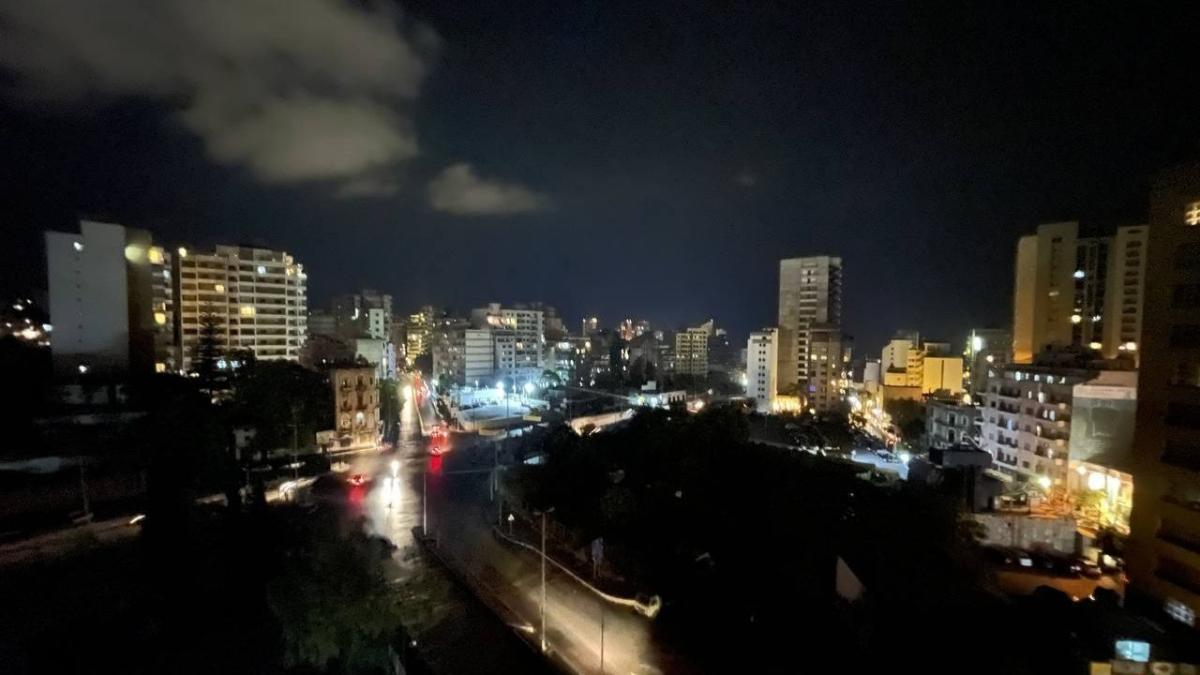
Lebanon has plunged into a country-wide blackout that is expected to last several days, leaving residents to secure private generators, or be left in the dark.
Due to the ongoing fuel crisis in Lebanon, a government official told Reuters that two major power stations, Deir Ammar and Zahrani, have shut down.
“The Lebanese power network completely stopped working at noon today [Friday], and it is unlikely that it will work until next Monday, or for several days,” the official said.
Middle Eastern Eye described the scenes on Beirut’s streets as eerily dark except for car headlights, with “the buzz of generator engines” filing the air “as if Beirut were a giant beehive”. It’s scary and apocalyptic, and it’s expected to become increasingly common as the country’s fuel reserves deplete.
BEIRUT: What full collapse of the national Electricity grid looks like. #Lebanon’s capital, once dubbed ‘Swiss of the East’, goes completely dark tonight due to corrupt political class & fuel shortages: pic.twitter.com/9FKGD7oij4
— Joyce Karam (@Joyce_Karam) October 9, 2021
Lebanon’s state electricity company, Electricite du Liban (EDL), warned in September that a country wide blackout was imminent. To work properly, the network needs to generate at least 600 megawatts every day. To put that in perspective, on Friday production dropped to below 200 megawatts — which isn’t enough to power 5,000 homes, let alone a country.
It’s after this that the power grid shut down completely, leaving people dependant on private generators — or at least, those who can afford them, as the socio-economic gap across the country widens.
Lebanon now has zero state power meaning the entire country is running on private generators. They are prohibitively expensive: my last month’s bill was 3.75 million lira which is $2500 on official rate& about $250 on black market. How is the airport running?What about hospitals? https://t.co/eFzcVhxH1I
— Bel Trew (@Beltrew) October 9, 2021
The country is facing a crippling energy crisis, the blackout a result of decades of corruption and mismanagement by the ruling class. In just two years, Lebanese currency lost 90% of its value, while consumer goods almost quadrupled in price. It’s not just an energy crisis, but a humanitarian one, as food and warmth become increasingly difficult to obtain.
A single tired-looking airport sandwich in Beirut now costs nearly a third of a monthly minimum wage salary. Imagine your monthly hard earned. salary being able to pay for just 3 bad sandwiches. #Lebanon #inflation pic.twitter.com/fuwSuJ01Lj
— Bel Trew (@Beltrew) October 7, 2021
Middle Eastern Eye has reported residents’ struggles to keep businesses open and incomes flowing, describing the blackout to be a “death sentence”. People are worried about how they’ll get through the approaching winter with the energy crisis, when diesel costs “ten times” more than people’s monthly wage. It’s an impossible situation.
In case you’re wondering, this is what it looks like inside a Lebanese private generator hub. 300+ flats getting all their power from here. Those who can’t afford the bills (millions of LLP per month) have nothing during this blackout, and only 1-2 hours when the grid is on. pic.twitter.com/LPQEFKj30Z
— Anna Foster (@annaefoster) October 9, 2021
The blackout also affects accessibility. A 60-year-old woman told Middle Eastern Eye that she struggles to climb the seven flights of stairs up to her apartment, now that the building’s lift isn’t operational. Hospitals and emergency services are in crisis mode, all while the population is still recovering from the devastating blast in Beirut last year.
In an attempt to alleviate the crisis, Lebanon has secured a fuel shipment from Iran via Syria. The government has also made a deal to swap medical services for fuel with Iraq, and there are negotiations in place to supply electricity from Jordan and gas from Egypt, though this likely won’t have results for months.
Lebanon’s Electricity Minister Walid Fayad told The Associated Press that the government will use emergency fuel supplies from the military while they await the fuel shipments from Iraq.



